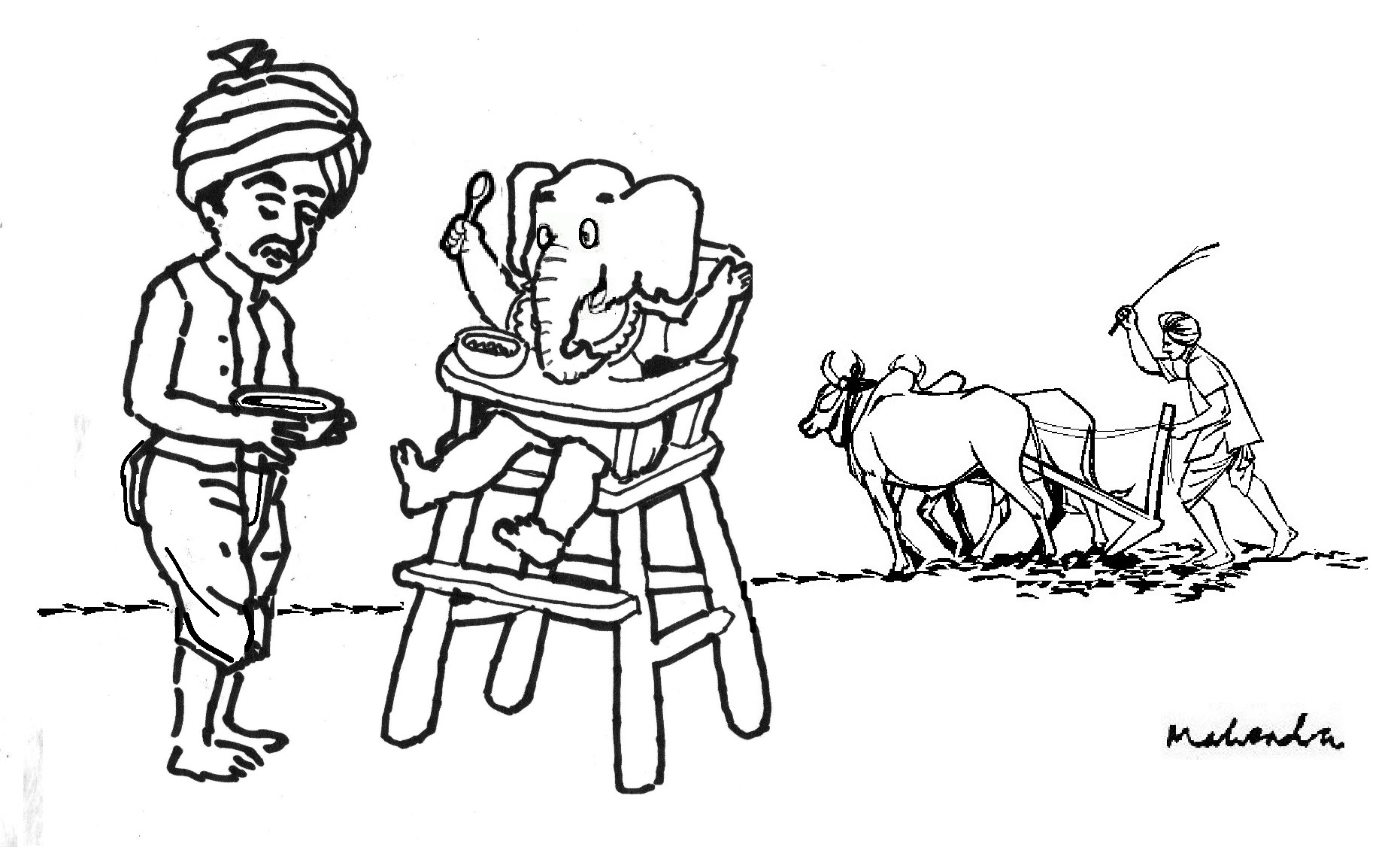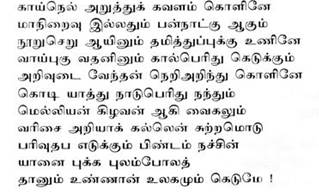Kollengode S. Venkataraman
e-mail: Â ThePatrika@aol.com
Corruption and bureaucratic excesses have been the bane of all kingdoms. This has been the case ever since mankind organized itself into societies seeking help from local leaders by paying them protection money against thieves and thugs to guard their homes, women, lands and harvests from pillage. That is the beginning of taxes.
Soon, much to their dismay, the villagers saw that the servants of the kings themselves becoming the exploiters. Sometimes they were as bad as the thugs from whom the villagers were seeking protection. Such was the case in the ancient Tamil country, nearly 2000 years ago. Many people say, it is the same story even today not only in the Tamil Country, but also in much of India.
Enter Pisirandaiyaar, a courageous and socially conscious poet in such a scene. The poet confronts his Pandya King, Arivudai-nambi, subtly telling him of the excesses of his tax collectors towards his citizens. Here is the Tamil original in classic Tamil from Puranaanooru, dated earlier to the start of the Common Era (that is, 2000 years earlier to our time):
This Tamil is very different even from today’s formal Tamil, not to speak of the spoken masala Tamil on the streets. Pisirandaiyaar uses an excellent agrarian imagery to tell his king on his citizens suffering under his tax collectors’ excesses. Here is the sum and substance of the Tamil verse: 
“If one harvests rice and feeds an elephant with the rice cooked and made into large balls, even from a small field [a fraction of an acre], one can feed the elephant for very many days.
“However, if one lets the elephant get into the paddy field and eat, even several acres of land cannot feed the beast. For every morsel of rice the elephant puts into its mouth, several ten folds are destroyed by its massive legs stomping on the harvest.
“Knowing this, a wise king is careful while collecting taxes from citizens. Then, even with low taxes, his kingdom prospers.
“However, if the king is weak, listens to his bad advisers, and recklessly lets his underlings to extract high taxes from citizens under duress, his kingdom would be destroyed the same way the elephant destroys the paddy field when allowed to enter it to feed for itself.”
Note that Pisirandaiyaar, over 2000 years ago, compared the bureaucracy of his time to an elephant, an imagery used even today even  in countries like the US and Germany, and France where elephants are not native to the soil.   ï®

